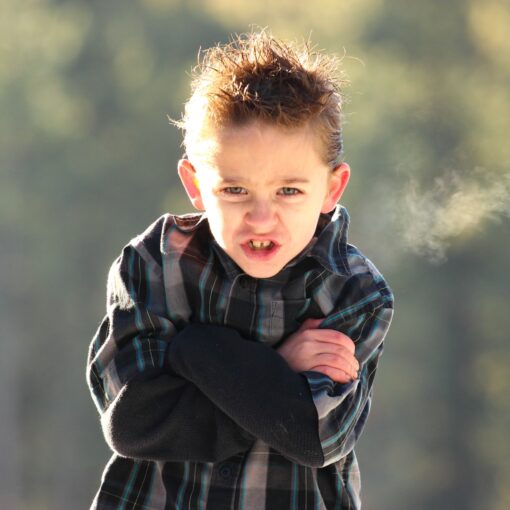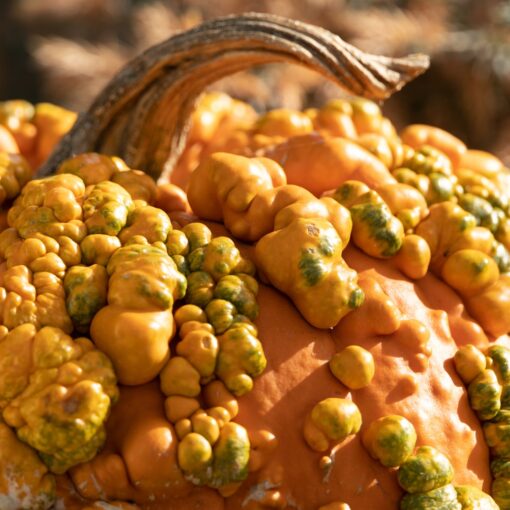Page Menu
Psittacosis is a respiratory infection caused by the Psittacosis bacteria. Symptoms of psittacosis can include a fever, headache, and muscle aches. The disease is most commonly spread through exposure to dusts or feathers from infected birds. Psittacosis can cause serious complications, including death, if not treated promptly. There are several ways to prevent psittacosis, and treatment typically consists of antibiotics.
Key Concepts and Top Takeaways
– Identify symptoms: Watch for fever, chills, and respiratory issues after bird exposure.
– Seek medical help: Consult a doctor if you experience persistent cough or difficulty breathing.
– Get tested: Request blood tests to confirm psittacosis diagnosis if symptoms arise.
– Avoid contact: Limit interaction with birds known to carry the disease, especially parrots.
– Practice hygiene: Wash hands thoroughly after handling birds or cleaning cages.
– Use protective gear: Wear masks and gloves when dealing with potentially infected birds.
– Monitor pets: Check pet birds for signs of illness and consult a vet if needed.
– Report outbreaks: Inform local health authorities about suspected cases in bird populations.
– Follow treatment plans: Take prescribed antibiotics as directed by your healthcare provider.
– Educate others: Raise awareness about psittacosis among bird owners and enthusiasts.
Please Note: This post may contain affiliate links. If you click one of them, we may receive a commission at no extra cost to you. As an Amazon Associate, I earn from qualifying purchases.

Psittacosis is a respiratory infection caused by the bacterium Chlamydophila psittaci. The disease typically affects birds but can also be contracted from wild or domesticated animals that have been in close contact with infected birds. Symptoms of psittacosis include fever, coughing, and shortness of breath. In severe cases, psittacosis can lead to pneumonia and even death. Psittacosis is treatable with antibiotics if it is caught early enough, and most people who contract the disease will recover without any serious long-term effects.
Psittacosis is most commonly caught through inhalation of bird droppings or feathers but can also be contracted through contact with infected animals or their secretions. The illness typically symptoms in people who have a cold or the flu, and usually lasts 3-7 days. Symptoms can include fever, cough, and shortness of breath. Treatment typically consists of antibiotics and rest. Pneumonia can occur as a result of psittacosis and can be fatal in severe cases.
Psittacosis is most commonly spread through the air, and can be contracted from wild or domesticated birds, such as parrots and cockatiels. Symptoms of psittacosis can include fever, chills, cough, difficulty breathing, and chest pain. Treatment typically involves antibiotics and rest. Complications of psittacosis can include pneumonia, stroke, and death. There is no vaccine available for psittacosis, but treatment with antibiotics early in the infection can help prevent these complications.
Symptoms of Psittacosis
Psittacosis is a respiratory illness caused by the bacteria psittacosis. Symptoms of psittacosis can include coughing, headache, shortness of breath, fever, muscle aches, chest pain, and general feeling of illness. If left untreated, psittacosis can lead to pneumonia and even death. Antibiotics are available to treat psittacosis if it is diagnosed early enough.
Coughing is one of the most common symptoms of psittacosis. Coughing can be a sign that the lungs are inflamed or infected with psittacosis.
The most common symptoms are fever, chills, and headache. About one-third of people who contract psittacosis develop a headache. This is because the bacteria can damage nerve cells in the brain. The headache may be mild or severe, and it usually lasts for several days. If you experience a headache after being infected with psittacosis, talk to your doctor about potential treatments.
Psittacosis is a contagious respiratory illness caused by the psittacine bird family, which includes parrots, macaws, and cockatiels. Symptoms of psittacosis include shortness of breath, cough, fever, and chest pain. Psittacosis can be deadly in people who are not immunocompetent. The most common way to get psittacosis is from exposure to the airborne saliva or feathers of an infected bird. People can also get psittacosis from contact with contaminated surfaces or water droplets that have been expelled by an infected bird. There is no specific treatment for psittacosis, but it can be treated with antibiotics if it is diagnosed early enough.
Fever may be a sign of other health conditions, such as meningitis or pneumonia, so it's important to consult with your doctor if you have any of these symptoms.
Muscle aches can be a sign that the person has the infection more seriously and may need to be treated with antibiotics.
Chest pain may be a symptom of other conditions, such as pneumonia and tuberculosis, but it may also be a sign of psittacosis. If you have chest pain and think you might have psittacosis, see your doctor to determine if you need treatment.
Causes of Psittacosis
Psittacosis is a highly contagious respiratory illness caused by the bacteria psittacosis. The illness can be spread through the air, contact with an infected animal or bird, or ingestion of contaminated food or water. Symptoms of psittacosis include fever, chills, headache, and body aches. In severe cases, patients may develop pneumonia. Psittacosis is most commonly diagnosed in people who have recently traveled to areas where the disease is endemic (e.g., Southeast Asia). Treatment typically involves antibiotics and rest.
Psittacosis is a respiratory infection caused by the psittacosis bacteria. The bacteria are found in the air, and can be spread through contact with an infected person's saliva or mucus, or through contact with any object (such as a doorknob) that has been contaminated with the bacteria. Symptoms of psittacosis may include fever, headache, chills, cough, and shortness of breath. Treatment typically includes antibiotics and rest.
The illness is most commonly spread to humans through exposure to an infected bird, but can also be contracted through contact with an animal that has the disease. Psittacosis can be fatal in humans, and can cause severe respiratory illness. Symptoms of psittacosis include fever, headache, chest pain, and shortness of breath. If not treated quickly, psittacosis can lead to pneumonia and even death. To prevent exposure to psittacosis, it is important to avoid contact with sick or infected birds and to follow safety guidelines when working with animals.
The bacteria is spread through the air, and can be transferred to humans through contact with an infected person's saliva or mucus. The disease most commonly affects birds, but can also be contracted from other animals such as rodents or insects.
Symptoms of psittacosis include fever, headache, cough, and shortness of breath. In severe cases, psittacosis can lead to pneumonia and even death. Prevention of psittacosis is through proper hygiene practices, including hand-washing after using the bathroom and before eating food. If you think you may have contracted psittacosis, seek medical attention immediately.
Risk Factors For Psittacosis
Risk factors for developing psittacosis include being overseas or travelling to an area where the disease is prevalent, having a weakened immune system, and having a history of other respiratory infections. Symptoms of psittacosis include fever, coughing, and chest pain. Treatment typically involves antibiotics and rest. If left untreated, psittacosis can lead to pneumonia and death.
While it is not commonly contracted in the United States, psittacosis is a significant public health concern in other parts of the world, where it is responsible for hundreds of deaths each year. Travellers are at increased risk of contracting psittacosis because they are more likely to come into contact with sick or wild birds. Travellers should take steps to avoid being infected by taking precautions such as avoiding close contact with wild birds and using effective insect repellent.
The weakened immune system is a Risk Factor for Psittacosis because it makes people more susceptible to the disease. Other respiratory infections can also increase a person's risk of developing psittacosis.
Complications From Psittacosis
Psittacosis can be deadly in people with weakened immune systems or those who are very young, elderly, or have other health conditions that make them more susceptible to infection. Complications from psittacosis can include pneumonia, lung abscesses, and even death. Prevention includes avoiding exposure to sick birds and using effective antibiotics if you are infected.
Pneumonia is a common complication from psittacosis, an illness caused by the bacteria psittacosis. The bacteria is spread through the air and can be present in birds, including pet birds. Pneumonia can develop days or weeks after exposure to the disease and can be serious.
Symptoms include coughing, shortness of breath, fever, and chest pain. If left untreated, pneumonia can lead to death. There are several steps you can take to protect yourself and your pet from psittacosis: keep your bird healthy by providing a nutritious diet and regular vet check-ups; avoid close contact with sick or infected birds; and if you think your bird has contracted psittacosis, get it treated as soon as possible.
Lung abscesses are a common complication of psittacosis and can occur in both humans and animals. In humans, lung abscesses are most commonly caused by the P. sylvaticus bacteria, which is found in infected wild birds. Animals that are infected with P. sylvaticus often develop lung abscesses as a result of their own immune response to the infection or from surgery or other medical treatments.
Lung abscesses can be very dangerous and should be treated as soon as they are noticed. If left untreated, they can lead to serious health complications, including death.
Treatment for Psittacosis
Psittacosis is a highly contagious disease that can be deadly to birds. There is no specific cure, but treatment focuses on relieving the symptoms and preventing the spread of the disease. Treatment typically includes antibiotics and rest.
Diagnosis of psittacosis is made based on symptoms and a positive blood or respiratory sample test. Treatment typically includes rest, hydration, and antibiotics. In some cases, corticosteroids may be prescribed to help reduce inflammation.
Rest is one of the most effective treatments for psittacosis. Patients are typically advised to take a week off from work and activities in order to recover from the illness. In some cases, patients may also require medications to reduce their fever and improve their symptoms. While there is no guarantee that rest will completely cure a person infected with psittacosis, it is one of the simplest and most effective ways to reduce your risk of developing the disease.
Hydration therapy for psittacosis generally involves providing patients with fluids and electrolytes intravenously or orally. This treatment strategy is aimed at restoring fluid balance and correcting electrolyte abnormalities caused by the disease. In some cases, corticosteroids may also be administered to reduce inflammation.
Antibiotics are a treatment option for psittacosis. Treatment with antibiotics usually results in complete recovery. However, there is a small chance that the person may experience some side effects, such as nausea and diarrhea.
If you think you may have contracted psittacosis, contact your doctor immediately. Treatment with antibiotics can be effective and safe.
Common Questions About Psittacosis
How do you get psittacosis? Psittacosis is a respiratory infection caused by the bacterium Psittacosis pneumoniae. The disease is spread through inhalation of the bacteria from an infected animal, often a bird. It can also be spread through contact with contaminated surfaces or water. Symptoms typically develop 12 to 18 hours after exposure and may include fever, cough, shortness of breath, and chest pain. In severe cases, psittacosis can lead to pneumonia and death. There is no specific treatment for psittacosis, but it can be managed with antibiotics if it is diagnosed early. Prevention includes avoiding close contact with wild birds and keeping your home clean and free of bird droppings.
How long does human psittacosis last? Psittacosis is a respiratory infection caused by the Psittacidae bacteria. The average incubation period is 10 days but can range from 2 to 14 days. Symptoms typically include fever, headache, and body aches, which may last for up to 7 days. In severe cases, pneumonia may develop. Psittacosis can be treated with antibiotics if it is caught early enough, but untreated cases can lead to serious complications such as death.
Does psittacosis go away? The disease is most commonly spread through the air and can be fatal in people with severe cases. However, there is currently no cure for psittacosis, and it typically goes away on its own after several weeks to months. Treatment focuses on relieving symptoms and preventing further spread of the infection.
Can psittacosis cause death? Psittacosis, a contagious lung infection caused by the bacteria Psittacosis, can lead to death in some cases. The bacteria can lodge in the lungs and cause severe pneumonitis (inflammation of the lungs), which can lead to pneumonia and ultimately death.
Ingestion of infected bird droppings or feathers is the main route of transmission for psittacosis. However, the condition can also be contracted through contact with an infected animal's saliva or mucus, as well as through inhaling the aerosols produced by their sickened feathers.
Pneumonia caused by psittacosis is one of the most serious outcomes of this infection and is particularly common in older adults and people with weakened immune systems. Proper hygiene practices–including avoiding contact with wild birds–are essential to preventing this disease from taking hold in any susceptible individual.
How do you test for psittacosis in humans? The disease is diagnosed through a combination of symptoms and tests. The most common test used to diagnose psittacosis is the serum antigen test, which uses antibodies from a person who has been infected with Chlamydia psittaci to identify the presence of the bacteria in a sample. Other tests that can be used to confirm the diagnosis include blood cultures and chest x-rays. Treatment for psittacosis typically involves antibiotics prescribed by a doctor. Prevention of psittacosis relies on avoiding exposure to birds and being aware of signs and symptoms of the disease.
How common is psittacosis? Psittacosis is a contagious respiratory illness caused by the bacteria Chlamydia psittaci. It is most common in people who have contact with wild birds, but can also be spread through close contact with infected animals, such as camels or horses. Symptoms of psittacosis include fever, headache, and cough. The disease is treated with antibiotics.
Is psittacosis a virus? Psittacosis is a respiratory illness caused by the bacterium Pneumocystis carinii. While there is no cure for psittacosis, early diagnosis and treatment is essential to preventing serious health complications. Psittacosis can be spread through contact with infected bird droppings or saliva, or when a person breathes in the bacteria.
The infection typically presents as a severe head cold that may last up to 10 days. Symptoms include fever, cough, difficulty breathing, and fatigue. In severe cases, psittacosis can lead to pneumonia and even death. While there is no vaccine available to prevent psittacosis, Steps are being taken to develop one. Until then, people who are at risk for developing the illness should take precautions to avoid contact with sick birds and avoid breathing in droplets from sick birds.
How does psittacosis affect the body? Psittacosis is a bacterial infection that can be caused by two specific types of birds: parrots and macaws. The bacteria, which is spread through the air, can affect the body in many ways. Symptoms of psittacosis can vary depending on the person, but they typically include fever, chills, headache, and nausea. In some cases, psittacosis can lead to pneumonia or even death.
Can psittacosis recur? Psittacosis is a respiratory illness caused by the bacterium Chlamydia psittaci. About 4% of people who get psittacosis will develop a recurrence of the illness. Recurrences are usually milder than the original infection and can be treated with antibiotics. If you develop symptoms of psittacosis, contact your doctor immediately.
How long does it take to recover from psittacosis? Psittacosis is a respiratory disease caused by the bacteria Psittacosis. It can take weeks or even months for a person to fully recover from the illness. There are several steps that a person must follow in order to overcome psittacosis:
– Remove any contaminated clothing and accessories;
– Stay hydrated;
– Get rest;
– Take antibiotics as prescribed by a doctor;
– Avoid close contact with other people who are infected with psittacosis; and
– Seek medical help if symptoms persist or worsen.
Is psittacosis a notifiable disease? Psittacosis is a notifiable disease in many countries. This means that healthcare providers are required to report cases of psittacosis to public health authorities. In some cases, this may include collecting information about the symptoms and severity of the illness. Public health officials can use this information to help prevent more cases from happening and to identify people who may be at high risk for getting sick from psittacosis.
What is the incubation period for psittacosis? The incubation period for psittacosis is typically 10 to 14 days but can range from 2 to 30 days. Symptoms of psittacosis include fever, headache, neck stiffness, and difficulty breathing. Diagnosis is made by measuring the presence of Sarcocystis neurona in blood or tissues. Treatment includes antibiotics and often rest. Prevention includes good hygiene practices and prompt treatment of any symptoms.
How do you know if your bird has psittacosis? Symptoms of psittacosis can include coughing, difficulty breathing, and fever. There is no cure for psittacosis, but treatment focuses on relieving symptoms and preventing further spread of the virus. If you think your bird may have contracted psittacosis, be sure to consult a veterinarian.
How can you prevent psittacosis? Prevention of psittacosis relies on recognizing the signs and symptoms of the disease and taking prompt action to treat any cases. There are a few things that you can do to help prevent psittacosis:
-Wash your hands often, especially after contact with animals or bird droppings.
-Avoid close contact with any birds, including pet birds.
-If you are traveling to an area where wild birds are prevalent, take necessary precautions to avoid contact with their droppings and saliva.
-If you develop a fever, headache, body aches, or difficulty breathing after visiting an area where wild birds are prevalent, seek treatment immediately.
In conclusion, psittacosis is a serious illness that should not be taken lightly. It can cause a variety of symptoms, some of which can be quite serious. There are several causes and risk factors associated with the disease, as well as a few potential complications. However, there are treatments available that can help improve the prognosis for those who are affected.

Kevin Collier is a seasoned health writer at Otchut.com, specializing in over-the-counter medicines, common medical ailments, and general health topics. With a background in healthcare and a passion for making medical information accessible, Kevin aims to empower readers with knowledge to make informed health decisions. When he's not writing, he enjoys researching the latest in health trends and advocating for wellness in his community.





